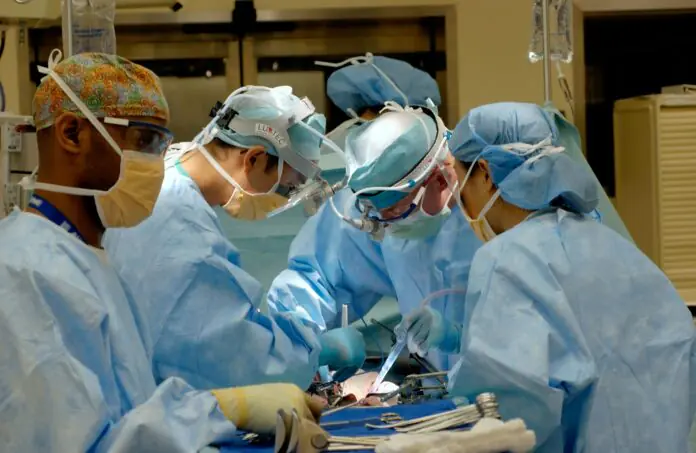A lifelong battle with constipation culminates in the removal of a 29lb colon
In a shocking medical case from China, a man who had suffered from constipation for an astonishing 22 years underwent life-changing surgery to remove an accumulated mass of faeces that had built up since birth. The patient, who chose to remain anonymous, had lived with this debilitating condition all his life, finding little to no relief from laxatives and other treatments.
Upon seeking medical help, the man was treated by Dr Yin Lu at the 10th People’s Hospital of Shanghai, where his condition was initially described as appearing ‘more than nine months pregnant’ due to the severe distention of his abdomen. The surgery, which lasted three hours, led to the removal of 30 inches of the man’s colon, weighing a staggering 29lb, laden with a lifetime’s accumulation of faeces.
Embed from Getty ImagesPost-operation, the patient was diagnosed with Hirschsprung’s disease, a rare condition affecting about one in every 5,000 live births. This disease is characterized by the absence of certain nerve cells (ganglion cells) in the bowel, which are essential for the muscle contractions that move food and waste through the intestines. As a result, individuals with Hirschsprung’s disease experience severe constipation and, if left untreated, can lead to a dangerous buildup of faecal matter in the colon.
Boston Children’s Hospital explains that symptoms of Hirschsprung’s disease can range from the failure to pass a bowel movement within the first 48 hours of life to chronic constipation in older children. The condition may lead to complications such as enterocolitis, a serious infection causing fever, pain, and diarrhoea.
The man’s plight highlights the importance of paying close attention to persistent symptoms like constipation, which may seem benign at first but could be indicative of a more serious underlying condition. In his case, the symptoms were overlooked during childhood, leading to a dangerous accumulation over decades. His family’s initial disregard for the severity of his symptoms, and his own resignation to his condition, delayed the diagnosis and treatment of Hirschsprung’s disease.
This case serves as a cautionary tale about the critical need for medical attention in the face of persistent health issues. It also sheds light on Hirschsprung’s disease, raising awareness of its symptoms and the importance of early diagnosis and intervention. As the man recovers from his surgery, his story is a stark reminder of the complexities of the human body and the extraordinary measures medical professionals take to alleviate suffering.
